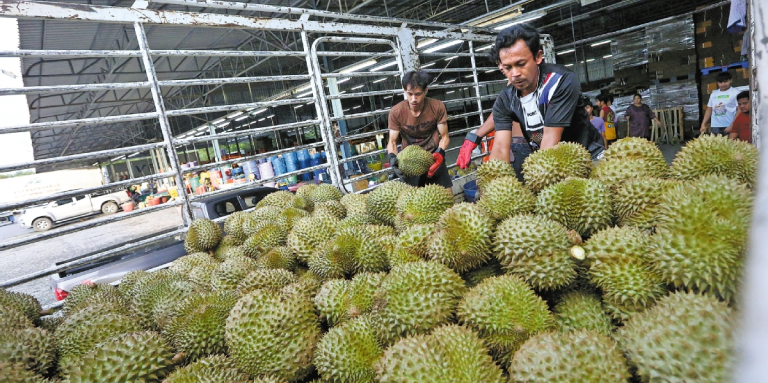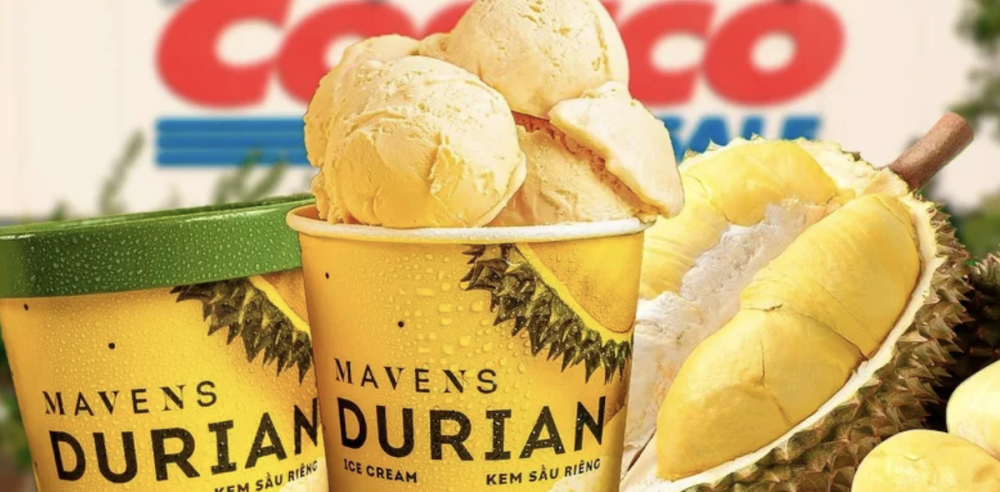
Smart agriculture and AI are transforming durian production to meet China’s insatiable appetite for the “king of fruits”
Bangkok — Thailand, the world’s leading exporter of durian, is racing to modernize its farming practices to keep up with skyrocketing demand—especially from China, where the divisive fruit has become a culinary obsession.
Known for its pungent aroma and custard-like flesh, durian is either
adored or reviled, but in China, it’s a billion-dollar import market.

Thailand’s Durian Dominance Faces Challenges
Last year, China imported 1.56 million metric tons of durian worth $6.99 billion, with nearly 60% sourced from Thailand.
However, traditional farming methods, unpredictable weather, and labor shortages threaten the industry’s growth.
“Thailand has perfect natural conditions for growing tropical fruits, and its durians are among the best in the region,” said Zhou Zhaoxi, a researcher from the Chinese Academy of Tropical Agricultural Sciences.
“But without modernization, farmers remain at the mercy of nature.”

Chinese Tech Boosts Thai Farms
To address these challenges, Chinese companies are partnering with Thai farmers to introduce smart agriculture solutions.
“Smart solutions significantly reduce labor costs and improve efficiency,” said Chang Canxian, Beyondsoft’s Southeast Asia managing director.
Their systems track soil moisture, nutrient levels, and even predict pest outbreaks—giving farmers real-time data to optimize yields.
Farmer Chord Chanbuppha, who switched from growing longan to durian, said the technology has been transformative.
“Before, we watered based on guesswork. Now, we know exactly what the trees need.”
AI and the Future of Durian Quality Control

Beyond farming, artificial intelligence is revolutionizing durian inspection. Traditionally, experts tapped fruits with sticks to check ripeness—a method prone to human error. Now, CP Group, Thailand’s agri-food giant, has teamed up with Huawei Cloud to develop AI-powered infrared scanners.
“These sensors analyze durians without damaging them, achieving 80% accuracy—and improving as more data is collected,” said Jiang Yuejun, CP Group’s CTO. The system ensures only premium fruit reaches export markets, safeguarding Thailand’s reputation as the “king of durian exporters.”
Global Market Expansion Beyond Asia
Once a niche Southeast Asian delicacy, durian is gaining traction worldwide. “In the U.S., U.K., and Australia, it’s appearing in fusion desserts, high-end grocers, and even fast-food chains,” noted Thanachot Nontakatrakool, an economist at Bangkok Bank.
With China’s demand still surging and global interest rising, Thailand’s durian industry must scale sustainably. As Zhou Zhaoxi put it: “For the long term, Thai durians will remain competitive due to quality and production volume—but innovation is key.”
